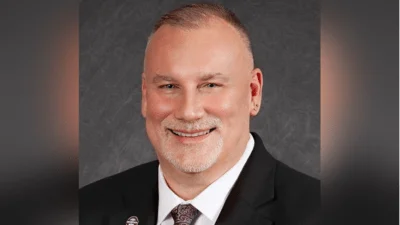Illinois State Board of Education, Gender Equity Advisory Committee met Sept. 8.
Here are the minutes provided by the committee:
I. Welcome & Roll Call
Present:
Anna Koeppel, Illinois Department of Labor
Sergio Hernandez, Illinois State Board of Education
Dr. Johnnie Thomas, Rich Township School District 227
Michael Phelon, The Outlet Illinois (joined after roll call)
Dr. Leslie Ward, Illinois State Board of Education
Absent:
Jami Hodge, Williamson County CTE System
Deanie Brown, American Association of University Women-IL Inc.
Sandra Westlund-Deenihan, Quality Float Works Inc.
II. Approval of the August 25, 2023, Minutes (roll call vote)
Motion made by Ms. Koeppel to accept the minutes as presented. The motion was seconded by Dr. Ward. No requests for changes were raised. The minutes were voted for acceptance as presented unanimously by the members.
III. New Member Status Update
a. The identification of a new member remains in progress.
IV. Data Requirements
a. Mr. Osborne reviewed the delivery schedule with the members and indicated that review of any needed and available data would be considered by GEAC by September 22 and October 6, 2023, with the goal of submitting the recommendations report by November 17, 2023.
b. Dr. Thomas opened the discussion to members so that data requests could be raised.
i. Mr. Osborne shared a list of the committee’s previously discussed data requirements and provided clarification on CTE data categorizations:
1. Disproportionality in discipline data
2. Disproportionality in time out data
3. Disproportionality in special education identification
4. Disproportionality in CTE’s PowerBI data (for participants and concentrators)
5. Disproportionality in Perkins Indicators (for CTE)
c. Mr. Hernandez indicated data related to socio-emotional outcomes as related to the Whole Child Task Force report. If possible, compare academic and socio-emotional outcomes before and after the COVID 19 pandemic. Data from the 5Essentials Survey may serve as a source.
d. Dr. Thomas touched on the need for data related to labor force accessibility by Illinois youth to better understand both college entry and participation, as well as trade school entry and participation. Unlike Illinois, other states in the country collect this data in a centralized manner.
i. CTE Perkins Indicator “Post Program Placement” has partial information in this area. There is a known significant gap with the data due to the fact that Illinois does not allow for use of Social Security information, which impedes tracking efforts. The CTE Department is working with the Illinois Department of Labor to identify potential future solutions.
ii. The CTE Department currently uses national data for the CTE Perkins “Post Program Placement” Indicator.
iii. Ms. Koeppel advised that some data is available, but will be improved next year.
iv. Mr. Osborne also confirmed that the CTE Department’s targeted reviews are performed to promote equity. Data from these reviews may be of use to the committee.
e. Mr. Phelon suggested evaluation of data regarding family structure.
f. Mr. Hernandez mentioned a high school-driven student survey in which 700-800 responses were collected. This would help identify student awareness of CTE programs. Mr. Osborne will request a copy of the data.
g. Dr. Ward inquired on how male students of color are informed about CTE programs. Career awareness is expected to be generated at each district that receives CTE Perkins funding. Mr. Osborne will review CTE data regarding career exploration for viability. Dr. Ward also mentioned ISBE’s recently released High School 2 Career Dashboard, which provides an opportunity for students and parents to review a wide range of information on Illinois public high school seniors and their pathways after high school, including postsecondary education choices by degree type and academic area of study, as well as their career outcomes. The tool’s information is made possible through a data sharing partnership between the Illinois Department of Employment Security, Illinois Student Assistance Commission, Illinois State Board of Education, and Illinois State University.
h. Ms. Koeppel also shared a link with members regarding work force data for reference.
i. Dr. Thomas discussed the different ways in which districts approach preparing students for the next level of readiness. Some districts work toward “college ready” whereas other districts focus on “college ready” or “career ready.” Seeking a sampling of exemplars would be beneficial for inclusion in the report. Another factor may be geography or location within the state of Illinois. The focus should be on allowing for a student to choose a preferred school or career path.
i. Mr. Osborne confirmed that CTE data is available for College and Career Readiness Indicators, as well as for college and career pathway endorsements. Both data points are optional for school districts at this time.
j. Dr. Thomas is interested in available discipline data.
k. Dr. Thomas is interested in data regarding systems of support, such as mentorships, counselors, etc., that is available.
l. Another needed data point raised was that of staffing. Mr. Osborne confirmed data regarding CTE program staffing and vacancies, along with student and educator demographics, will be shared where available.
i. Historical data for student and educator demographics may be accessed in part through the ISBE Educator Supply and Demand webpage. Although its data is refreshed every three years, historical data may be of use to members. The data currently on the site will be refreshed in late December 2023 but will he enhanced to report with more granularity.
m. If data is not available but confirmed as vital, the report make reference to the need for data collection. i. An example of this could be a Return on Investment report as is done in other states but not in Illinois. Mr. Osborne cited the lack of ability to track students by Social Security information as an impeding factor.
n. Mr. Osborne will share the amounts various states spend on CTE programs in comparison to Illinois. o. Mr. Osborne will determine if data for Project Lead the Way is available.
p. Mr. Osborne will provide requirements for CTE program educator credentials.
i. Professional Educator License in an approved CTE program (four-year degree).
ii. CTE Educator License with Stipulations (requires 60 semester hours and a minimum of 2,000 hours of work experience outside of education in the area to be taught).
iii. CTE Educator License with Stipulations Provisional (requires 8,000 hours of work experience outside of education in the area to be taught).
q. Mr. Osborne will try to provide data by district and career centers by population of students and enrollment in CTE programs.
r. Mr. Hernandez asked if a map could be provided to display disinvestment in economic opportunities in communities of color throughout the state. If available, how is this information shared?
i. Mr. Osborne confirmed that an analysis is performed by the CTE Department in this area and it will review how the information is disseminated.
V. Old Business
a. Brandon Ewing – Subject Matter Expert from Board President – Waukegan, Illinois
i. Mr. Ewing provided an overview of his efforts in Waukegan to improve the educational and socio-emotional growth of its students.
ii. Dashboards were created and enhancement to evaluate data at a school level, as opposed to a district level.
iii. Increased focus was placed on understanding student backgrounds and needed systems of support.
iv. A primary driver for the work was the identification of a significantly low metric on student reading proficiency levels.
v. The committee appreciated Mr. Ewing’s efforts in Waukegan and participation in the meeting.
b. Feedback regarding Open Meetings Act
i. Mr. Osborne confirmed work groups are handled in the same manner as subcommittees.
c. Mandated trainings reminder
i. One member has submitted the needed training completion certificates. Members were asked to review the training materials and provide a copy of the training certificates to Mr. Osborne.
▪ 2023 Ethics Training Program for State Employees and State Appointees (due September 24, 2023).
▪ Open Meetings Act (due September 24, 2023). Mr. Osborne will provide additional information on how to access this training.
▪ 2023 Harassment & Discrimination Prevention Training (due November 23, 2023).
VI. New Business
a. Whole Child Task Force Report Subject Matter Expert
i. The chairpersons agreed to wait until early October 2023 to determine if a task force member would be available to participate in the October 20, 2023, committee meeting.
VII. Public Comment
a. No discussion points were raised.
VIII. Adjournment
Motion made by Mr. Hernandez to adjourn. The motion was seconded by Ms. Koeppel. Adjournment was voted for acceptance unanimously by the members.
https://www.isbe.net/Documents_GEAC/20230908-Minutes.pdf





 Alerts Sign-up
Alerts Sign-up